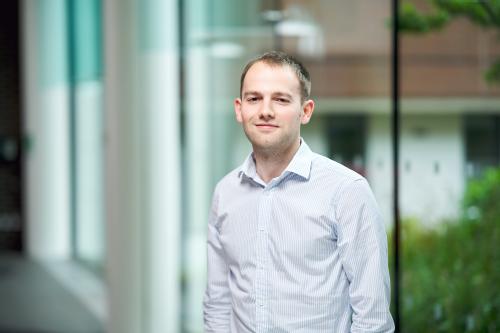Computer Science News
Dr. Claire Rocks becomes a Foundation Fellow of the Warwick Institute of Engagement
The Warwick Institute of Engagement has announced that Dr. Claire Rocks has been chosen as one of 38 Foundation Fellows. The Warwick Institute of Engagement is a new group within the University of Warwick that aims to champion the future of high quality public engagement. It brings together Warwick’s extensive practical engagement expertise with pioneering academic research.
Dr. Claire Rocks has been a vital part of the Department of Computer Science's outreach team, having organised and run many successful events in the past few years with the aim to raise the profile of Computer Science and introduce it to new demographics. Claire is currently a Co-I on the Play Code Share project which brings Computer Science and the Arts together to teach computing in a creative and playful way.
Dr. Claire Rocks said about her appointment,
I’m delighted to be one of the Foundation Fellow of the Warwick Institute of Engagement and look forward to working with both staff and students to champion high quality public engagement with the fantastic work that we do.
More information on the Department's outreach activities is available.
Dr. Roger Packwood Retires from the Department
Technical Manager Dr. Roger Packwood is retiring from the Department of Computer Science. Roger has been a part of the department longer than most of the buildings have been on campus, including the current Department of Computer Science. Roger provided invaluable support for staff and students in the department and his presence will be very much missed.
Graham Cormode named 2020 ACM Fellow
Prof. Graham Cormode of the Department of Computer Science has been named among the 2020 Association for Computing Machinery (ACM) Fellows, for contributions to computer science. The ACM is the world's leading learned society for computer science. Prof. Cormode is recognised for his contributions to data summarisation and privacy enabling data management and analysis. His work on data streams and sketching has been widely implemented in many high tech companies and organisations.
Professor Edmund Rolls' 15th book, "Brain Computations: What and How", published by Oxford University Press
Professor Edmund Rolls is pleased to announce the publication of his 15th book "Brain Computations: What and How" by Oxford University Press.
The aim of this book is to elucidate what is computed in different brain systems; and to describe current computational approaches and models of how each of these brain systems computes. Understanding the brain in this way has enormous potential for understanding ourselves better in health and in disease. Potential applications of this understanding are to the treatment of the brain in disease; and to artificial intelligence which will benefit from knowledge of how the brain performs many of its extraordinarily impressive functions.
This book is pioneering in taking this approach to brain function: to consider what is computed by many of our brain systems; and how it is computed. Details can be found here. Professor Rolls notes that the research described in this book has high impact in terms of citations (see here for more information).
Adam Shephard joins the TIA lab

Adam Shephard has just joined the department as a Research Fellow and is currently working in the Tissue Image Analytics (TIA) Lab on the ANTICIPATE project funded by Cancer Research UK. He has recently submitted his thesis on the application of deep learning to paediatric MRI at Aston University, under the supervision of Prof. Amanda Wood and Dr. Jan Novak. His role in the ANTICIPATE project will be concerned with the development and application of deep learning techniques to digitized histology slides to aid in the more efficient grading of head and neck tumours, to ultimately provide more accurate patient prognoses.
EPSRC funding success for Dr. Ramanujan Sridharan
 We are delighted to report that Dr Ramanujan Sridharan from the Theory and Foundations (FoCS) research theme at the Computer Science Department has received a prestigious EPSRC New Investigator Award. The approximately £264K project titled "New frontiers in Parameterizing Away From Triviality” aims to develop novel notions of graph edit distance and investigate their connections to efficient solvability of computationally hard problems.
We are delighted to report that Dr Ramanujan Sridharan from the Theory and Foundations (FoCS) research theme at the Computer Science Department has received a prestigious EPSRC New Investigator Award. The approximately £264K project titled "New frontiers in Parameterizing Away From Triviality” aims to develop novel notions of graph edit distance and investigate their connections to efficient solvability of computationally hard problems.the proposal identifies research questions that are novel, has the potential to have a broader impact both within and outside academia and it is an exciting project that will break new ground.
Zhenjian Lu joins the department as a Research Fellow
We're happy to announce that Zhenjian Lu has joined the department as a Research Fellow. He is currently funded by the project "New approaches to unconditional computational lower bounds", with support from the Royal Society.
Zhenjian Lu will soon defend a PhD thesis in computational complexity at Simon Fraser University under the supervision of Prof. Valentine Kabanets and Prof. Andrei Bulatov.
He is primarily interested in Computational Complexity, Circuit Lower Bounds, Algorithms, Pseudorandomness, Analysis of Boolean Functions, and Meta-Complexity.
